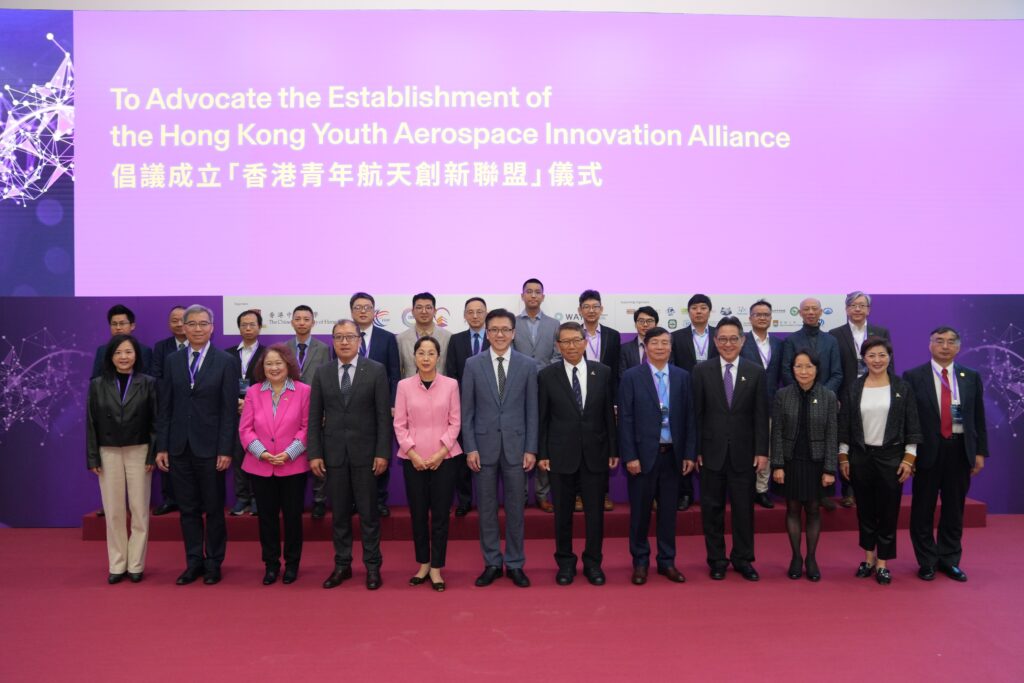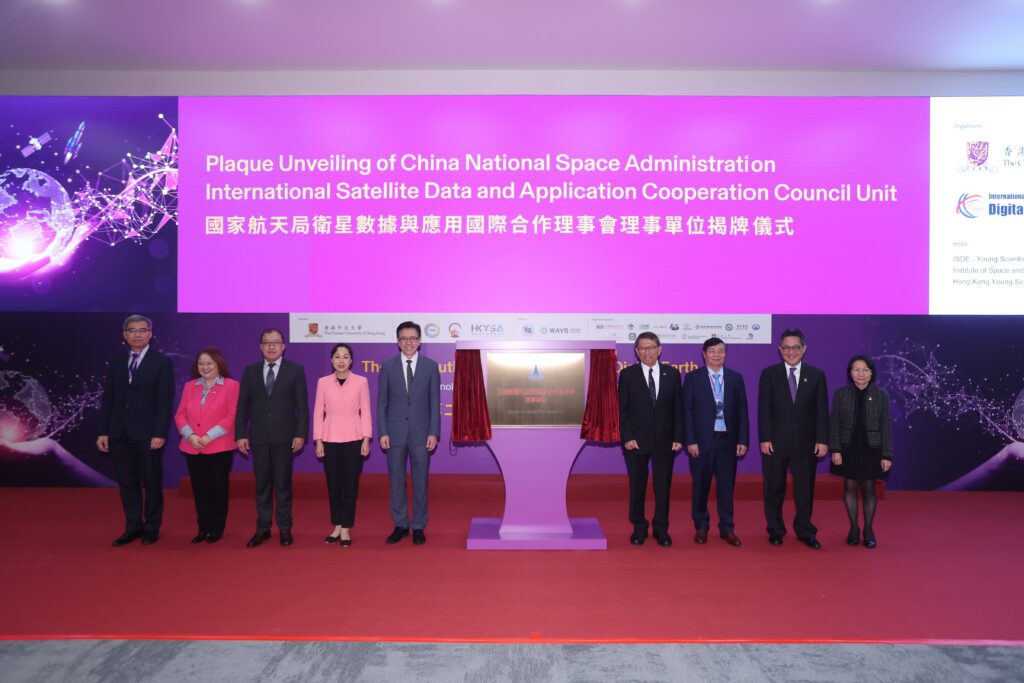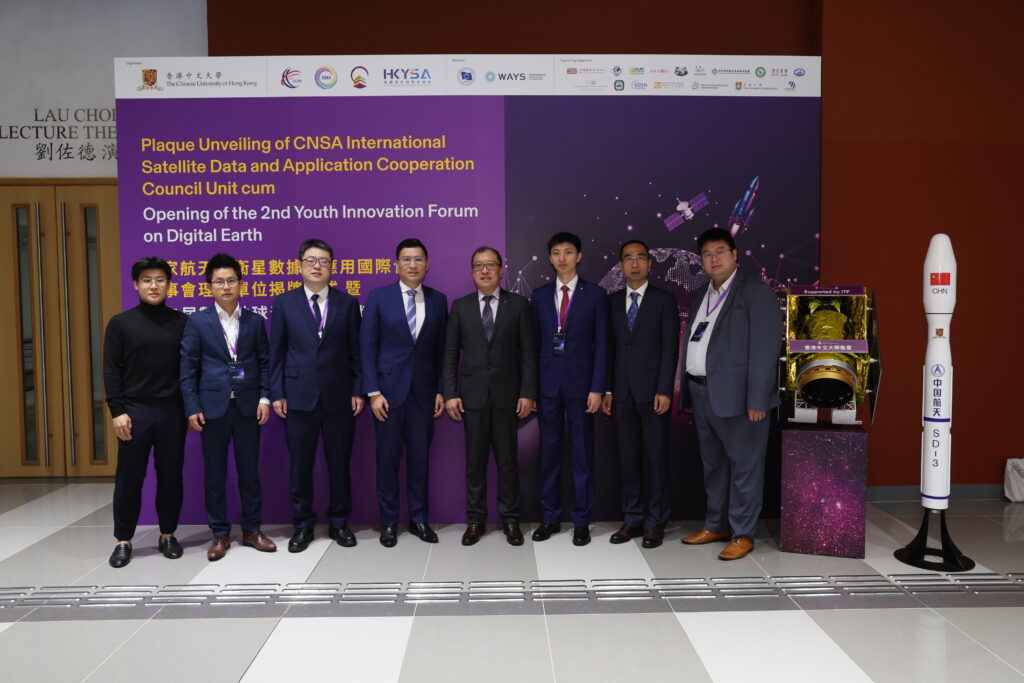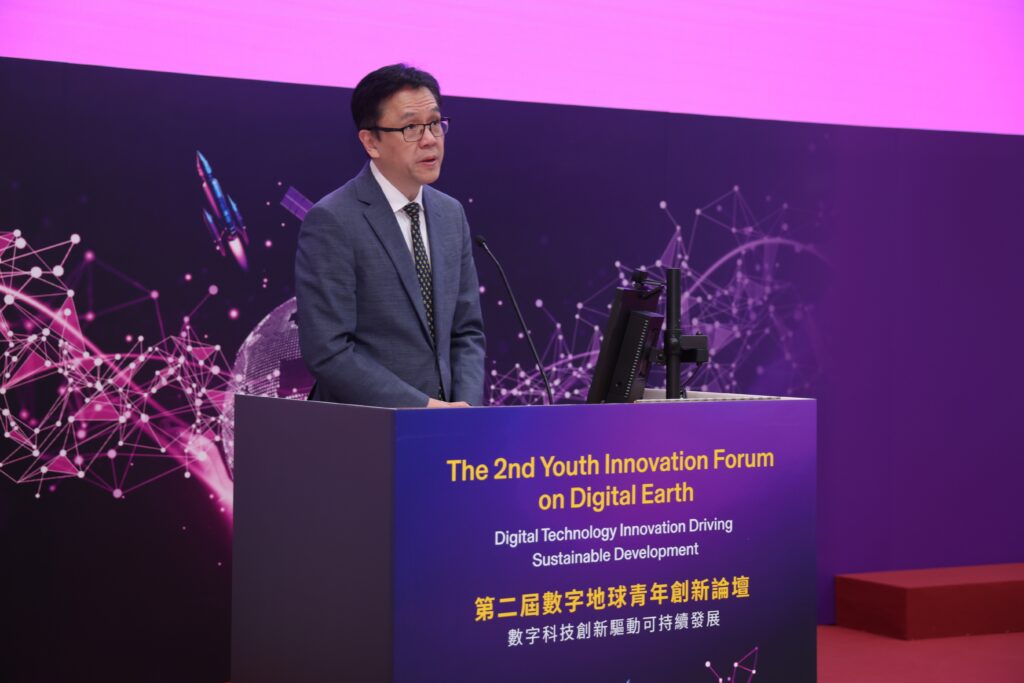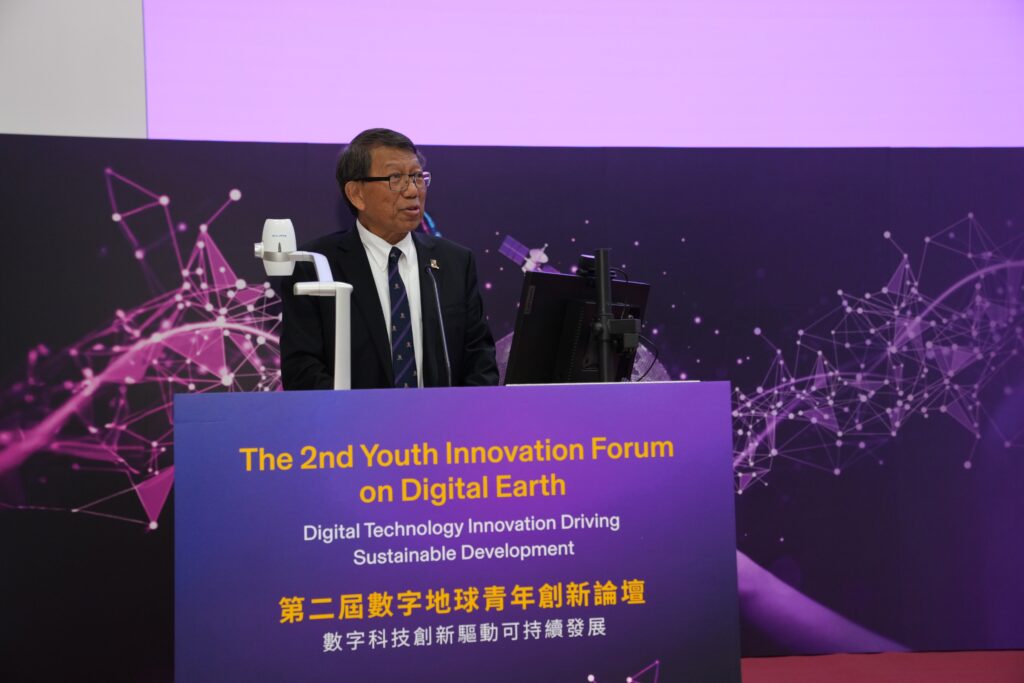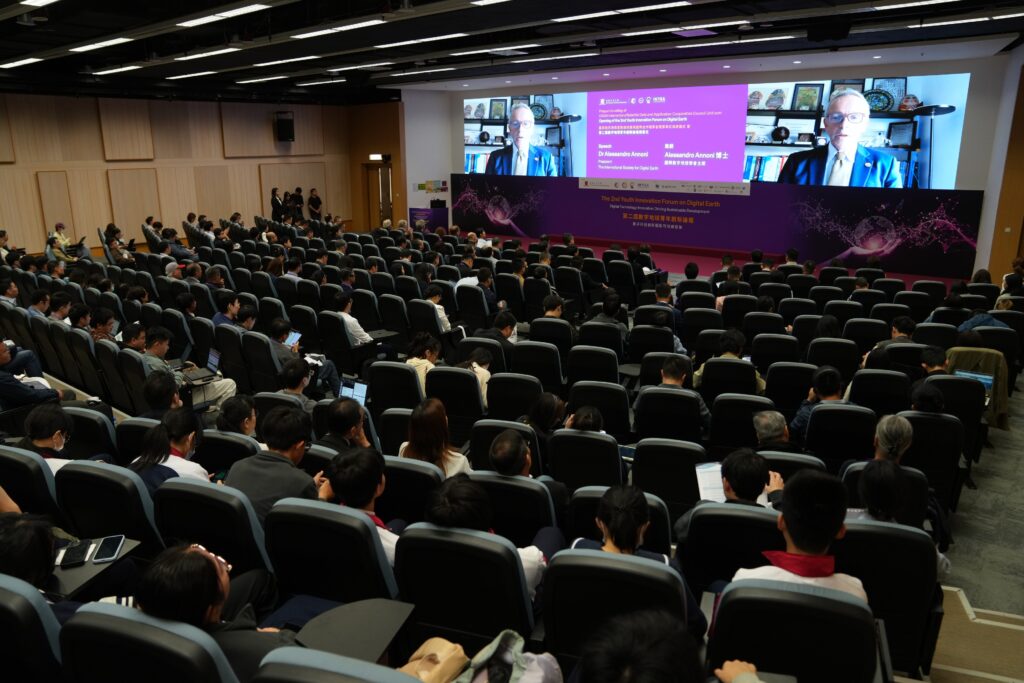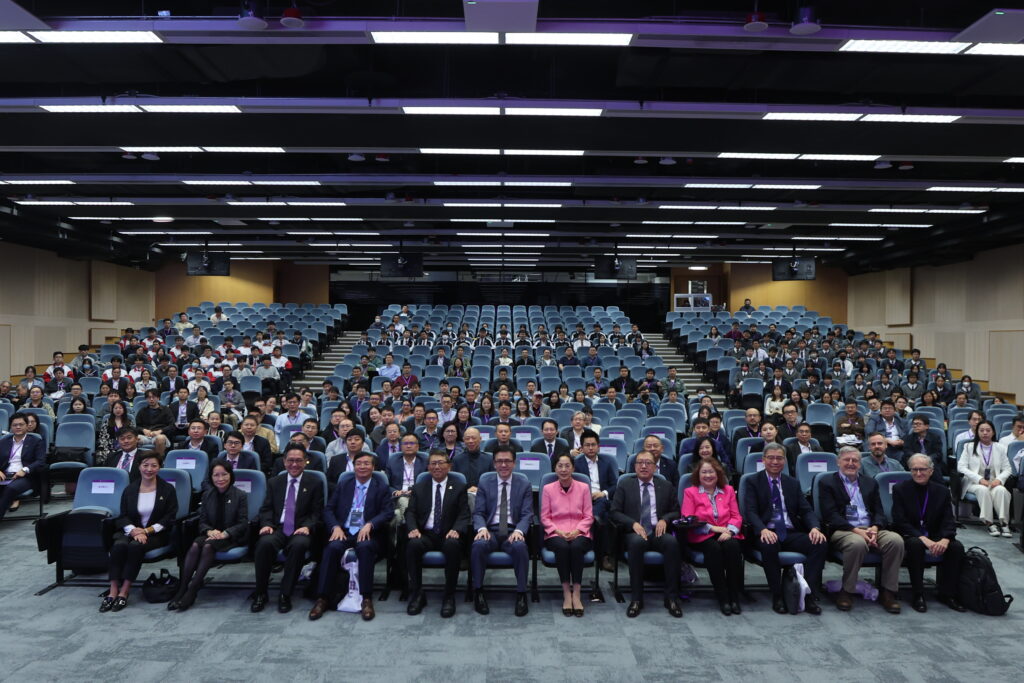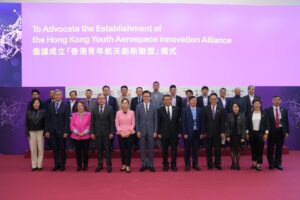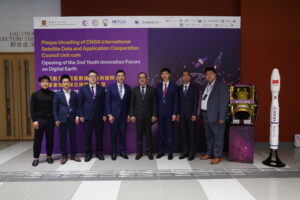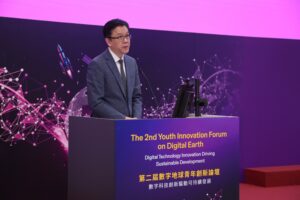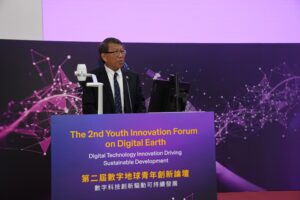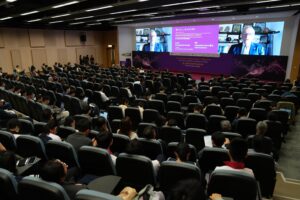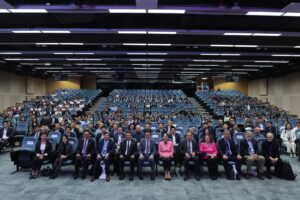CUHK
News Centre
CUHK unveils the plaque for the International Satellite Data and Application Cooperation Council Unit and opening of the 2nd Youth Innovation Forum on Digital Earth
The Chinese University of Hong Kong (CUHK) recently organised the plaque unveiling of the first China National Space Administration (CNSA) International Satellite Data and Application Cooperation Council Unit in Hong Kong, and kicked off the 2nd Youth Innovation Forum on Digital Earth, marking a new milestone for Hong Kong in the fields of space and digital technology.
Guests attending the event included Professor Sun Dong, Secretary for Innovation, Technology and Industry in the Hong Kong government; Professor Rocky S. Tuan, Vice-Chancellor and President of CUHK; Ms Wu Cheng, Deputy Director of the Department of Educational, Scientific and Technological Affairs in the Liaison Office of the Central People’s Government in the Hong Kong SAR; Professor Gong Jianya, Academician, Chinese Academy of Sciences; Mr Wang Fengyu, Executive Director of the China National Space Administration International Satellite Data and Application Cooperation Center; Professor Michael Goodchild, Member of the US National Academy of Sciences; Mr Kenneth Chen Wei-on, Vice-President (Administration) of CUHK; Professor Kwan Mei-Po, Director of Institute of Space and Earth Information Science (ISEIS) at CUHK; Legislative Council member Mr Duncan Chiu; Professor Wang Changlin, Secretary General of the International Society for Digital Earth; Mr Cheung Wai-man, Head of the Geotechnical Engineering Office, Civil Engineering and Development Department in the Hong Kong government; Dr Barbara Kwok Pik-lin, Honorary Fellow of CUHK; and Professor Chen Min, Chair of the Young Scientist Innovation Network of the International Society for Digital Earth. Almost 500 guests and experts from 18 countries and regions, including the United Nations Economic and Social Commission for Asia and the Pacific, Harvard University, Tsinghua University, Peking University, Wuhan University, the Aerospace Information Research Institute of the Chinese Academy of Sciences, and the Innovation Academy for Microsatellites of the Chinese Academy of Sciences, were also present at the event.
Professor Sun said in his speech: “In recent years, the government has supported local universities in conducting space-related education and research, and achieved notable results. The successful launch of the CUHK satellite is one of such landmark achievements. In this year’s Policy Address, we also announced the establishment of a new research centre under the InnoHK research cluster to participate in the Chang’e 8 China lunar exploration mission organised by the China National Space Administration, contributing to national aerospace development. We are confident that the new research centre will further enhance our local capabilities in space science and technology, and foster the next generation of aerospace-related talent. I am also delighted to learn that professors from CUHK and other institutions have initiated the establishment of the Hong Kong Youth Aerospace Innovation Alliance, which will encourage more Hong Kong scientists, particularly young talent, to participate in key national space missions. The government will continue to support the development of space science and technology, and promote its application in digital economy, smart cities and more.”
Professor Tuan said in his speech: “CUHK celebrated the launch of its first remote sensing satellite this year, and introduced a collaborative double major programme in Aerospace Science and Earth Informatics with CUHK-Shenzhen this academic year. This demonstrates our commitment to advancing scientific research and modernising national science and technology. ISEIS will closely cooperate with the CNSA Satellite Data and Application International Cooperation Council to harness its research expertise and powerful connections with mainland and international partners that will advance aerospace technology development. We would like to express our gratitude to all our esteemed partners, and look forward to collaborating with different parties to develop and share cutting-edge scientific research, cultivating young aerospace science and technology talents who have an international perspective, and promoting the technological development of our nation and sustainable development of the Earth.”
The 2nd Youth Innovation Forum on Digital Earth held at CUHK
CUHK hosted the 2nd Youth Innovation Forum on Digital Earth on its campus from 4 to 7 December. This event was guided by the China Association of Young Scientists and Technologists, and the World Association of Young Scientists, and co-organised by the International Society for Digital Earth, CUHK and the International Research Center of Big Data for Sustainable Development Goals. It was jointly undertaken by the Young Scientists Innovation Network of the International Society for Digital Earth, ISEIS and the Hong Kong Young Scientist Association. The forum focused on the digital technological innovation driving sustainable development, inviting researchers, scholars and students from around the world in the fields of digital earth and sustainable development to participate in discussions.
The Hong Kong Youth Aerospace Innovation Alliance was also initiated to be established during the event. The alliance aims to promote innovation and collaboration among young talents in the field of aerospace, serving Hong Kong and the Guangdong-Hong Kong-Macao Greater Bay Area in areas such as disaster prevention and mitigation, carbon neutrality and sustainable development. It seeks to open a new chapter for Hong Kong in the aerospace industry, technology, talent cultivation, and international cooperation and applications.
CUHK celebrated the launch of the first remote sensing satellite this year and introduced a collaborative double major programme in Aerospace Science and Earth Informatics with CUHK-Shenzhen. CUHK will continue to promote the development of aerospace and digital technology, deepening collaboration with domestic and international institutions to contribute to the cultivation of the next generation of technological talent.
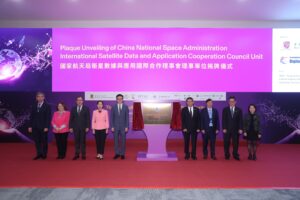
Plaque Unveiling of China National Space Administration International Satellite Data and Application Cooperation Council Unit


